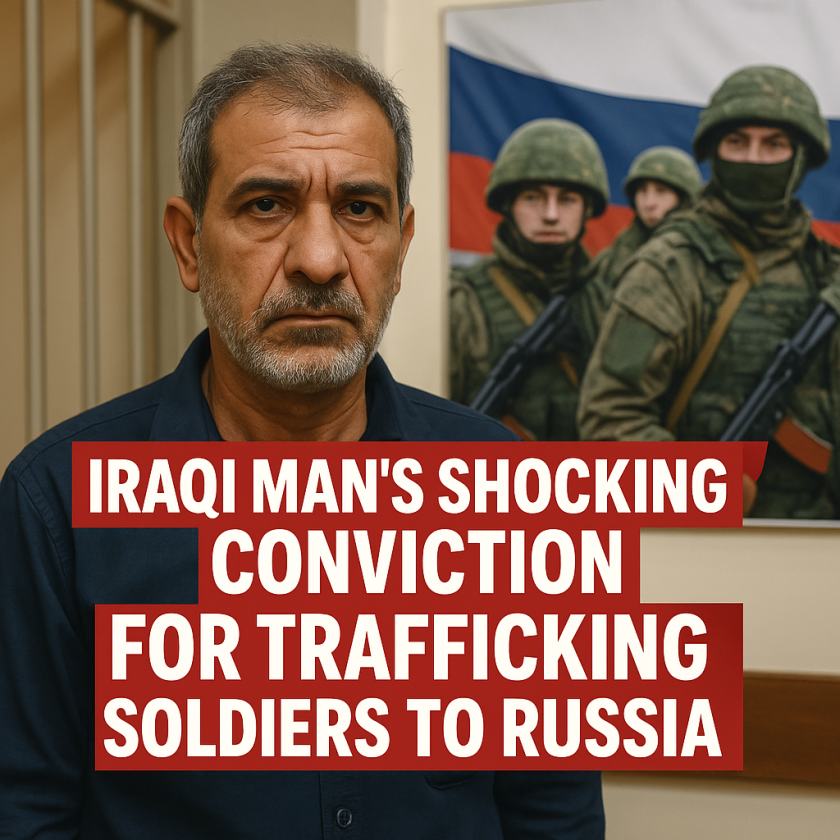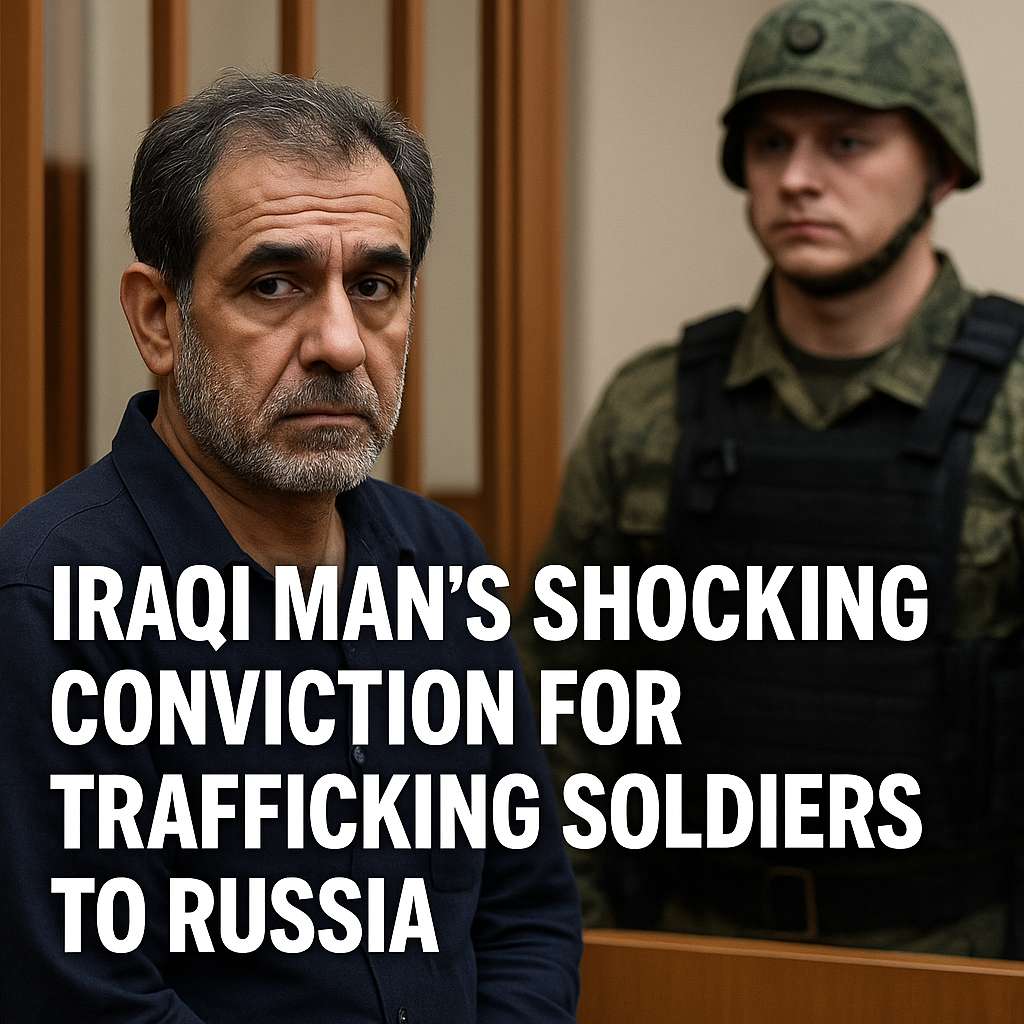Iraqi Man’s Shocking Conviction for Trafficking Soldiers to Russia
Iraqi Man’s Shocking Conviction for Trafficking Soldiers to Russia
An Iraqi man has been convicted for trafficking individuals to fight for Russia in the ongoing conflict in Ukraine. This case, which has garnered significant media attention, raises numerous questions about the global implications of mercenary recruitment and the mechanisms through which foreign conflicts attract participants.
The Conviction and Its Implications

The conviction centers on an Iraqi named Ahmed, who is accused of recruiting and trafficking men from Iraq and other Middle Eastern countries to join Russian forces in Ukraine. The court found that he not only organized the transport of these individuals but also misrepresented the nature of their involvement, leading them to believe they would be engaged in various forms of employment rather than military service.
The case has prompted widespread concern about the legality and morality of such recruitment practices. As noted by Al Jazeera, this conviction is particularly shocking given the ethical implications surrounding the exploitation of vulnerable populations in unstable regions. It highlights a broader trend where mercenary groups capitalize on economic desperation amid crises.
In the backdrop of increasing combat losses in Ukraine, both Russia and Ukraine have been accelerating efforts to bolster their ranks. Implicit within this dynamic is a disturbing commercialization of warfare, where individuals may be led to believe they are joining a cause rather than a combat situation. This broader trend complicates our understanding of military engagement in contemporary conflicts.
The Broader Context of Mercenary Recruitment
Mercenary recruitment is not a new phenomenon; it has existed throughout history. However, recent trends in warfare have introduced new complexities. Other sources, such as RT, suggest that the war in Ukraine has created fertile ground for various recruitment methods. Individuals are often lured through promises of wealth or adventure, with many unaware of the harsh realities of combat.
In understanding this development, it’s essential to recognize the socioeconomic factors at play. Many of the individuals targeted for recruitment come from impoverished backgrounds, making them susceptible to the seductive narrative of lucrative employment. Sky News further highlights that as the war drags on, both sides may increasingly rely on external forces to supplement their military efforts.
Diverse Perspectives on Recruitment
While some view this Iraqi man’s conviction as a step toward accountability, others express concerns that the legal framework may not adequately address the complex nature of these conflicts. The motivations behind individuals volunteering for such roles vary significantly, and many may view it as a means of survival rather than explicit endorsement of the conflict’s aims.
Moreover, the recruitment networks often involve transnational criminal organizations, as pointed out in various reports. This not only complicates legal proceedings but also poses significant challenges for enforcement agencies trying to combat human trafficking. The situation illustrates a worrying intersection of war, crime, and the exploitation of human lives, drawing attention to the need for more robust international regulations regarding mercenary activities.
Questioning the Future of Mercenary Conflicts
The ramifications of this case extend beyond the personal tragedy of those exploited. The military strategies employed by both sides in the Ukraine conflict raise significant ethical questions about the role of privatized military forces. As countries navigate through regenerative warfare, observers warn of an increasingly blurred line between state-sanctioned military action and that of independent contractors.
Reports have emerged suggesting that not only are foreign recruits being sent to fight, but there may also be organized networks facilitating these transactions, making it crucial for authorities to take comprehensive action against this illicit trade. There is also a need for international efforts to address the root causes of recruitability, which often lie in economic instability and social inequality in vulnerable nations.
A Call for Ethical Engagement
In conclusion, the conviction of the Iraqi man engaged in trafficking victims into war casts a stark light on the murky waters of modern conflict. While the legal verdict may act as a deterrent, it also calls for a broader discourse on how societies engage with the ethical dilemmas of warfare, recruitment, and economic disparity. The war in Ukraine illustrates a deeper interconnectedness of global crises, suggesting an urgent need for international collaboration to safeguard lives while addressing the economic and social factors that drive individuals into such precarious situations.
As debates about mercenary roles continue to evolve, it remains essential to keep ethical considerations at the forefront. The complexities of these conflicts challenge not only legal frameworks but also global governance and humanitarian principles. Ultimately, moving forward, a united front against exploitation may be the only way to foster lasting peace and stability in war-torn regions.






































